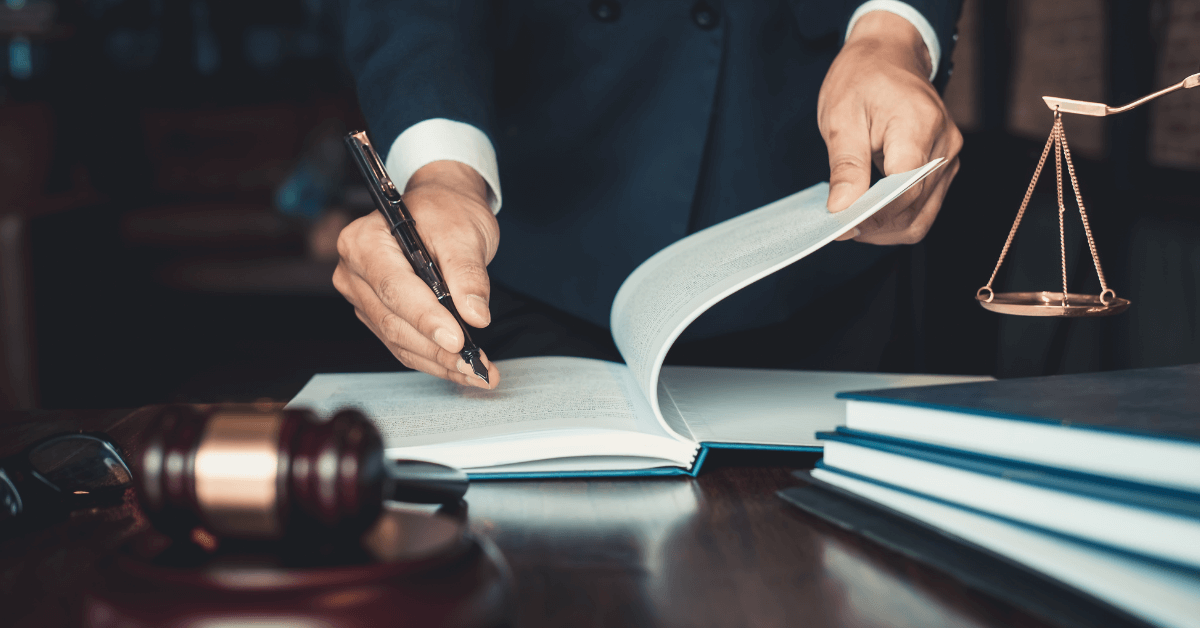A “Letter to Client from Attorney” is a formal communication sent by a legal professional to their client. Its purpose is to provide updates, convey important information, or offer legal advice regarding a specific matter or case. This letter serves as a means of maintaining clear and transparent communication between the attorney and their client, ensuring that the client is kept informed and involved throughout the legal process.
In this article, we’ll provide practical templates, examples, and samples of “Letters to Client from Attorney.” Whether you’re a practicing attorney, legal assistant, or law student, our resources aim to simplify the process of drafting professional correspondence to clients. By offering these templates, we empower users to effectively communicate with their clients, addressing their needs and concerns with clarity and professionalism.
With our easy-to-use samples, you’ll have access to a variety of letter formats tailored to different legal scenarios and client relationships. Whether you’re providing updates on a case, requesting additional information, or offering legal advice, our templates will guide you through the letter-writing process, ensuring that your communication with clients is concise, informative, and legally sound.

Sample of a Letter to Client from Attorney
[Attorney’s Name]
[Attorney’s Firm Name]
[Attorney’s Address]
[City, State, Zip Code]
[Date]
[Client’s Name]
[Client’s Address]
[City, State, Zip Code]
Subject: Update on Your Legal Matter
Dear [Client’s Name],
I hope this letter finds you well. I am writing to provide you with an update regarding [briefly describe the legal matter or case]. As your attorney, it is my duty to keep you informed about the progress and any developments concerning your case.
I am pleased to inform you that [provide specific details or milestones achieved in the case]. This progress is a testament to our diligent efforts and commitment to achieving a favorable outcome on your behalf. However, it is important to note that [mention any challenges or upcoming steps in the legal process].
Please rest assured that I am dedicated to advocating for your best interests and will continue to work tirelessly on your case. Should you have any questions or concerns, please do not hesitate to reach out to me at [Attorney’s Phone Number] or [Attorney’s Email Address].
Thank you for entrusting me with your legal representation. I appreciate your patience and cooperation throughout this process.
Sincerely,
[Attorney’s Name]
[Attorney’s Firm Name]
How to Write a Letter to Client from Attorney

Crafting a letter to a client from an attorney requires attention to detail and clarity in communication. Here’s a comprehensive guide on how to write such a letter:
Understanding the Purpose of the Letter
Before drafting the letter, it’s crucial to understand its purpose. Determine whether you’re providing updates on a legal matter, seeking additional information, offering legal advice, or conveying important deadlines. Understanding the purpose will help tailor the content of the letter to meet the client’s needs effectively.
Identifying the Key Information
Gather all relevant information pertaining to the client’s case or legal matter. This includes details about the client’s situation, any legal proceedings or actions taken, recent developments in the case, and any upcoming deadlines or requirements. Having a clear understanding of the facts will ensure that the letter is accurate and informative.
Structuring the Letter
Organize the letter in a clear and logical manner, starting with a brief introduction or greeting, followed by the main body of the letter containing the relevant information or updates, and concluding with a polite closing statement. Use headings, bullet points, or numbered lists to break up the text and make it easier for the client to read and understand.
Maintaining Professionalism and Confidentiality
Throughout the letter, maintain a professional tone and demeanor. Avoid using overly technical legal jargon that may confuse the client, and instead, use plain language to explain complex legal concepts or developments. Additionally, ensure that any confidential information is handled with the utmost care and discretion, adhering to ethical and legal obligations regarding client confidentiality.
Addressing Client Concerns
Anticipate any questions or concerns the client may have and address them proactively in the letter. Provide clear and concise answers to common queries, and offer reassurance or clarification where needed. Encourage the client to reach out if they require further information or assistance, and provide contact details for easy communication.
Reviewing and Editing
Before sending the letter, thoroughly review and edit the content for accuracy, clarity, and professionalism. Check for spelling and grammatical errors, ensure that all information is up-to-date and relevant, and confirm that the tone and style of the letter align with the client’s expectations and the overall purpose of the communication.
Following Up
After sending the letter, follow up with the client as needed to ensure that they have received and understood the information provided. Offer further assistance or clarification if required, and reaffirm your commitment to advocating for their best interests. Maintaining open communication and a proactive approach to client correspondence is a key to building trust and confidence in your legal services.
FAQs about a Letter to Client from Attorney
When it comes to writing letters to clients from attorneys, certain questions tend to arise frequently. Here are five of the most commonly asked questions on this topic:
1. What information should be included in a letter to a client from their attorney?
A letter to a client from their attorney should include essential information such as updates on the client’s case or legal matter, details about recent developments or proceedings, any actions taken or recommended steps, and clear instructions on what the client needs to do next. Providing this information helps keep the client informed and involved in their legal proceedings.
2. How should the tone of the letter be conveyed?
The tone of the letter should be professional, respectful, and reassuring. Attorneys should aim to communicate with their clients in a clear and concise manner, using language that is easy to understand and free of legal jargon. It’s important to convey empathy and understanding while also instilling confidence in the client’s legal representation.
3. What are some common reasons for attorneys to write letters to their clients?
Attorneys may write letters to their clients for various reasons, including providing updates on the status of their case, requesting additional information or documentation, advising on legal matters or strategies, communicating important deadlines or requirements, and addressing any concerns or questions the client may have. These letters serve as a means of maintaining open communication and keeping the client informed throughout the legal process.
4. How often should attorneys communicate with their clients via letter?
The frequency of communication between attorneys and their clients via letter may vary depending on the nature of the case and the stage of legal proceedings. In general, attorneys should strive to keep their clients updated on significant developments or milestones in their case and to address any questions or concerns in a timely manner. However, it’s essential to strike a balance between providing regular updates and avoiding unnecessary correspondence that may overwhelm the client.
5. What should clients do upon receiving a letter from their attorney?
Upon receiving a letter from their attorney, clients should carefully read the contents and take note of any instructions or recommendations provided. If there are any questions or uncertainties, clients should not hesitate to reach out to their attorney for clarification or further assistance. It’s important for clients to actively engage with their legal representation and to communicate openly throughout the duration of their case.
RELATED:
Letter of Introduction to Clients
